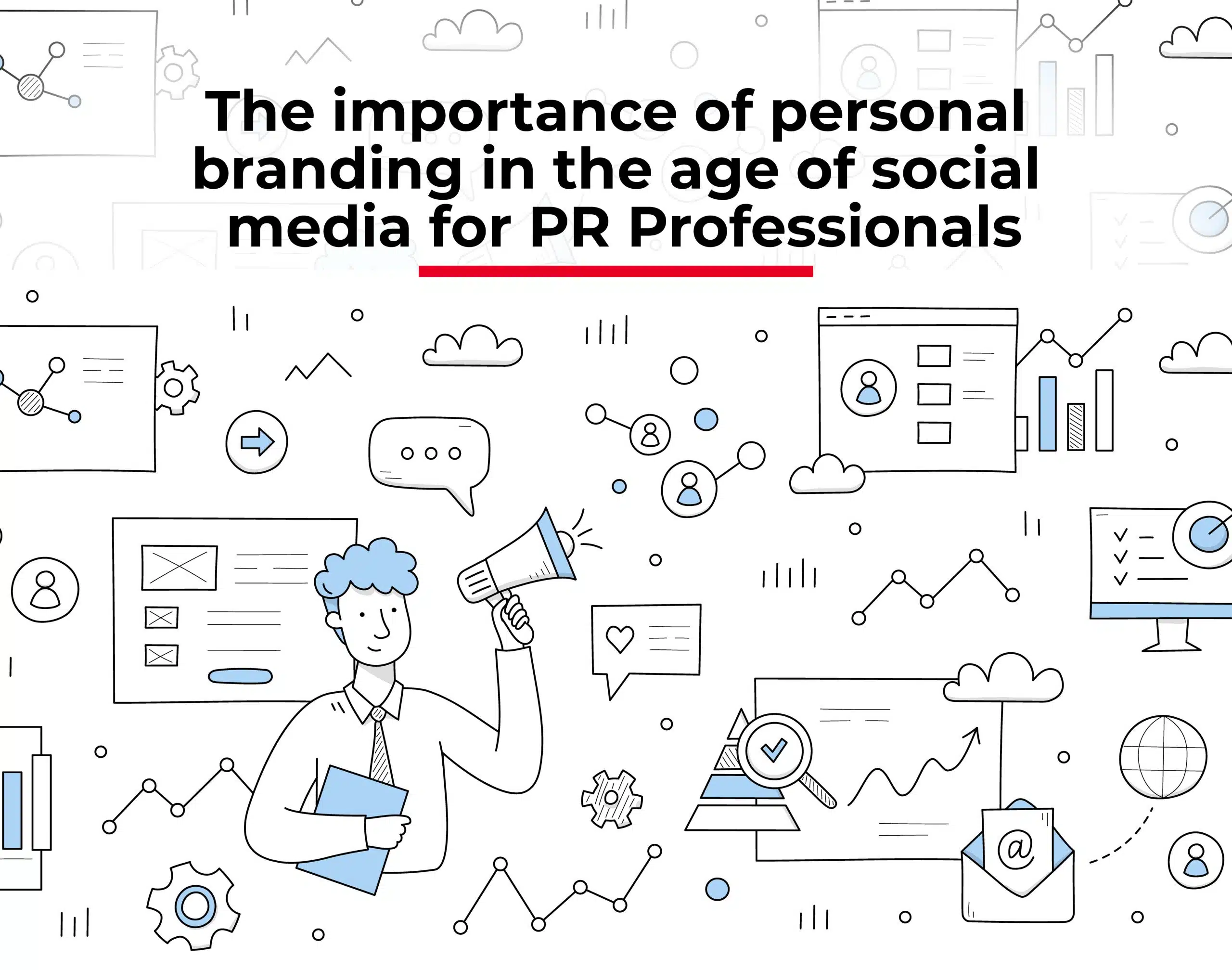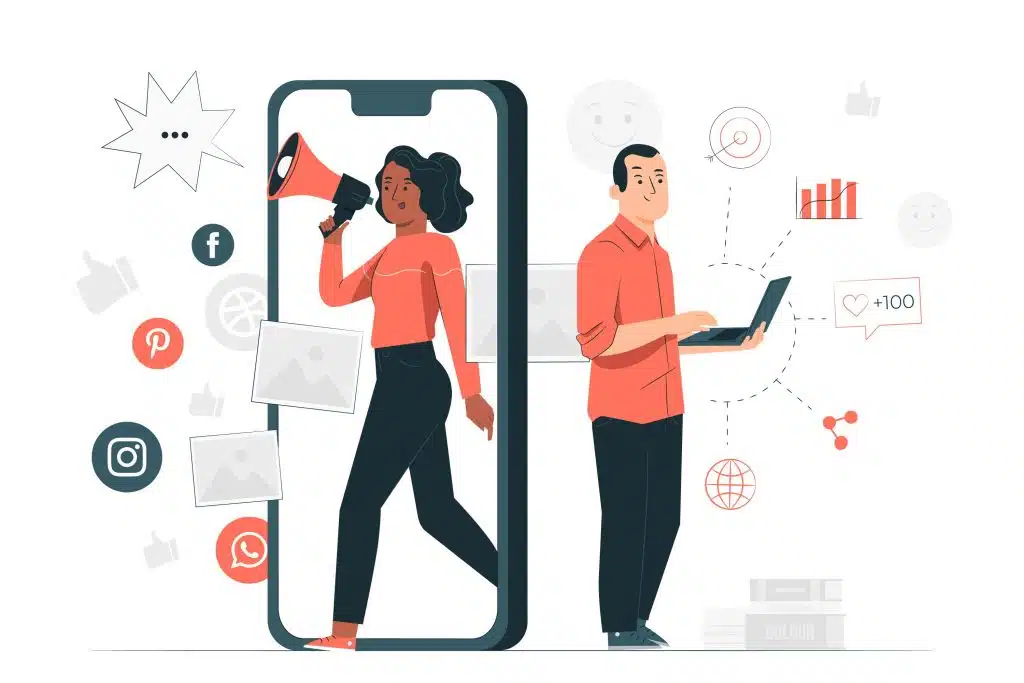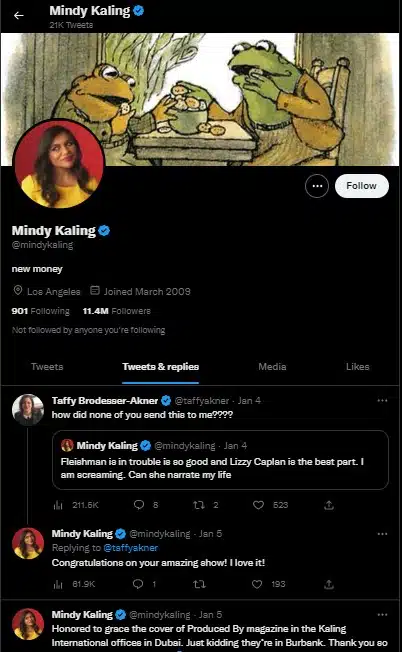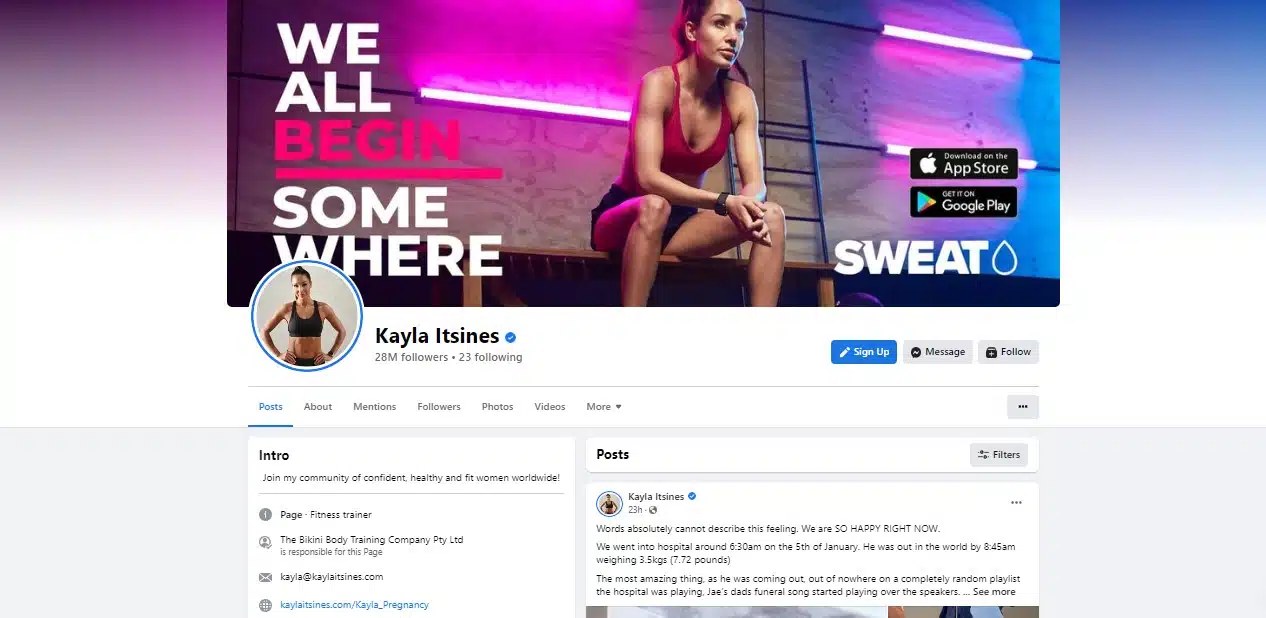
- R. Couri Hay
- 0

Personal branding is one of the many trends in the digital age. A personal brand is more crucial than ever in a world where anyone can start a blog or a social media profile. Your narrative can be in your hands, and a personal brand can make you stand out, helping people build their brands as they promote themselves and their careers.
A personal brand can help you stand out in a sea of social media profiles and draw the attention of potential employers or customers. A personal brand is a way to promote both your professional achievements and yourself.
In the current digital era, personal branding is more crucial than ever for PR professionals. Social media has made it simpler for people to connect online and share details about themselves and their jobs. PR professionals must be more careful about their online presence because it greatly impacts their reputation and career.
Why is personal branding important?
One of the main advantages of personal branding is that it makes PR professionals stand out in a competitive marketplace. It’s critical to stand out and leave a lasting impression online because so many people are vying for attention. PR professionals can accomplish this by showcasing their distinctive abilities, values, and personalities through a well-designed personal brand.
Personal branding also gives PR experts the power to steer the narrative in their favor. People had very little control over how other people perceived them. However, now people can actively shape their narratives and tell their own stories using social media and other online platforms. This is crucial for PR professionals, who frequently represent clients and must effectively convey their message.
Because it fosters credibility and trust, personal branding is crucial for PR specialists. Individuals are more likely to be regarded as reliable and credible sources of information when they present themselves as authorities in their field and regularly share valuable content. This is crucial for PR specialists because they frequently act as a bridge between their clients and the general public.
A proper personal branding strategy enables relationship development and maintenance. Online relationships can now be formed easily, thanks to social media. PR professionals can develop and maintain relationships with clients, colleagues, and the media by actively participating in online communities and sharing useful content.
How can I build my personal brand?
1. Assess Yourself
It is crucial to consider your unique qualities when developing your personal brand. What values do you hold? What would you like to be remembered for? Spend some time thinking about ideas, and jot down everything you bring to the table that supports your viewpoint. Start producing content that represents your brand once you have the answers to these queries. You can reach a global audience with your message using blog posts, social media updates, or even videos.
2. Center Yourself
Your identity is the source of your personal brand, but it’s much more focused than that. Avoid attempting to please everyone.
Your worth
You must identify your unique value proposition, which is the main justification for why people should and will pay attention.
Although the Golden Circle Theory of branding was developed for businesses, it can also be used by individuals who want to develop their persona. The Golden Circle comprises three concentric circles that can help you concentrate and express everything you offer.
- Why. The closest ring. Why do you behave in this way? What is the goal or vision you have?
- How. The central circle. How do you provide for your what and fulfill your why?
- What. The largest ring. What do you have to offer the community or audience?
The theory’s creator, Simon Sinek, suggests beginning with the innermost circle and working outward from there.
Your catchphrase
A tagline is not mandatory, but it is unquestionably helpful. You make your mission simple to remember by condensing it. A creative and catchy tagline helps your target audience remember you when they need a similar product or service.
Need some examples? Here are some to consider:
- “Travel smarter, cheaper, longer.” Nomadic Matt (Budget travel blogger)
- “We think in stories. We want to create yours.” Sofia Crokos (Event planner)
- “Writing that’s not afraid of the dark.” Mary Maddox (Mystery novelist)
- “Healing spirit art.” Teri Leigh Teed (Artist)
These taglines are brief and straightforward. They effectively convey the specific benefits a person hopes to provide for their audience or client.
Style yourself
In conclusion; personal branding is crucial for PR professionals in the age of social media. Although it is a difficult task, it is worthwhile. They gain control over their narrative, establish credibility and trust, and uphold relationships thanks to it. PR professionals can position themselves for success and career advancement by investing in their brands.
Deciding your public’s reaction to you is the next step. You want to develop a style that highlights your strengths and aligns with your point of view.
Your character
A powerful, consistent personality is necessary for a coherent brand. If you choose the appropriate words to describe your brand personality, you’ll discover that your appearance and tone will develop naturally.
Your look
Personal fashion choices can be a part of your look, but it goes further than that. Consistency is essential, whether it’s your website, Facebook page, or welcome email.
Your voice
A key component of your brand is your voice.
How would you like to say what you want to say? Which voice most closely resembles the character of your brand?
The Nielson-Norman Group researched online tone of voice and branding. They examined websites from across the internet and found that the tone of voice had four key components:
- Funny vs. serious
- Formal vs. Informal
- Respectful vs. irreverent
- Enthusiastic vs. matter-of-fact
Start there if you need assistance defining your voice. Where do you think each dimension belongs?
3. Stay true to who you are.
Be sincere. Personal branding requires consistency, and the more genuine your brand is, the simpler it will be for you to stay true to yourself and your brand.
Your brand reflects the way you live. It must fit properly and make you feel at ease.
This does not imply that you should or must squeeze every facet of your private life into a box and then reveal it to the public. You can have both public and private social media or email accounts.
4. Developing one’s personal brand.
It’s time to develop your brand into the force it can be after you’ve created it. You must expand your audience and make your brand a reliable and well-known entity.
5. Put that song on repeat.
It may be tempting to keep reinventing yourself. Resist. A successful brand is defined by repetition and consistency.
You want to replicate your successes and standardize your voice and design.
Use a particular form of content to model for others if it performs well.
Variety in moderation is ideal. Your product should feel new. However, you also need to set and fulfill expectations.
6. Select the appropriate social media platform.
The majority of personal branding today is centered on social media. On some platforms, you might already have a private account. You must go public and curate your content for your brand.
Choose a few of the most well-liked social media sites, then grow your following. You should choose the appropriate locations according to your industry and your audience’s demographics. It would be best if you took into account your inherent advantages. It takes effort and time to create content. Choose a task you enjoy.
7. Follow a schedule.
Seamless scheduling is where social media tools pay off. You must establish a regular posting schedule if repetition and consistency are essential.
Utilize tools to design ads, plan content, and integrate your social media accounts. From one central location, you can listen in on conversations and respond.
8. Engage industry peers and conversations
Even though you are amazing, not everything should be about you. Talk to people in similar stages of their careers, observe successful people, and keep an eye on the popular hashtags with your audience.
Examples of personal branding to study
Take inspiration from those who have mastered the art of personal branding as you build and develop your brand. Influencers and top industry experts frequently have a lot to teach you. Start by examining some of the examples listed below.
Mindy Kaling
The lesson: keep it real.
Mindy Kaling, an author, actress, producer, and all-around mega-star, is now recognized for her brand and impressive work. Although she is a major player in Hollywood, her brand is that of the friendly girl next door, whom you may have teased when you were younger but who now earns more than you ever will.
No matter the project, Kaling always comes off as genuine and relatable. She is open about having insecurities. She profits from them by turning them into best-selling books and popular television shows. Her social media posts are equally full of everyday struggles and victories as they are of Hollywood glitz.

(Twitter user Kaling has more than 11 million followers. People do not watch television for Hollywood glitz. They come for her charming self-deprecation.)
Kayla Itsines
The lesson: provide value.
Australian fitness expert Kayla Itsines has created a fitness empire using social media. She uses her accounts to communicate with her followers and advertise her online services that require subscriptions.
But Itsines gained enough popularity through her free content that she could charge for her ebooks, apps, and fitness channel. To get access to her Bikini Body Guides, people began to follow her. She sold her fitness platform to iFit for $400M within ten years later.

(With more than 28 million fans on Facebook, Itsines is the most popular fitness influencer worldwide.)
Libbie Mugrabi
Libbie Mugrabi’s personal brand is built around her status as a contemporary art collector and socialite. She is known for her distinctive fashion sense and involvement in high-profile events, including art fairs and gallery openings. Her association with the contemporary art world has helped establish her as a tastemaker and influencer. She has leveraged this to become a prominent figure in the art community, making her a sought-after figure for events, interviews, and other opportunities. The positive media attention generated by R. Couri Hay’s PR efforts has helped increase her exposure and build her reputation, which has opened up new opportunities and allowed her to develop her personal brand further.
Jean Shafiroff
Jean Shafiroff is a philanthropist and socialite known for her personal branding as a humanitarian and fashion influencer. She leverages her platform to raise awareness and funds for various charities, and her events and appearances often focus on high-end fashion and luxury lifestyles. She has also authored books on philanthropy and has been featured in various media outlets for her work in the non-profit sector.
Afsaneh Akhtari
Afsaneh Akhtari is a British-Iranian classical singer known for performing traditional Persian classical music. Akhtari has performed in concerts and festivals worldwide and collaborated with other musicians and ensembles in both classical and world music genres. She is also known for her commitment to cultural education and efforts to promote cross-cultural understanding through music. By developing her personal brand with R. Couri Hay and utilizing their PR strategies, she has reached a wider audience and established herself as a leading performer of traditional Persian classical music. This has enabled her to gain recognition and build a loyal following, as well as opportunities to perform in prestigious venues and collaborate with other artists.
Additionally, her personal branding and PR efforts have helped to promote cultural education and cross-cultural understanding through music.
Modifying one’s personal brand
You might realize that you’ve outgrown your brand at some point. Maintaining a brand is a continuous process. There is nothing wrong with purposeful, goal-driven rebranding, even though you don’t want to change your brand frequently and impulsively.
Starting a personal branding campaign
Personal branding can be easy and exciting. You do much of it instinctively; you need to be more deliberate.
Determine the people you want to influence and the outcome you want. Create a recognizable brand by developing a consistent look that recycles design elements. Select a select few platforms, then start creating branded content for those platforms.
In conclusion, personal branding is crucial for PR professionals because it helps them stand out, control their narrative, build trust and credibility, and maintain relationships. By investing in their brand, PR professionals can position themselves for success and advance their careers.
When it comes to developing a brand, R.Couri Hay Creative PR in New York City has decades of experience, whether it’s for a start-up company, an established company, or a personal brand. We know the value of developing a personal brand, which is essential for a PR specialist. Get help right away for developing your personal brand.

